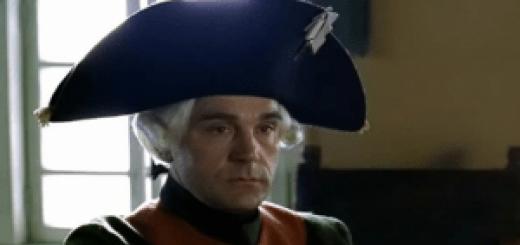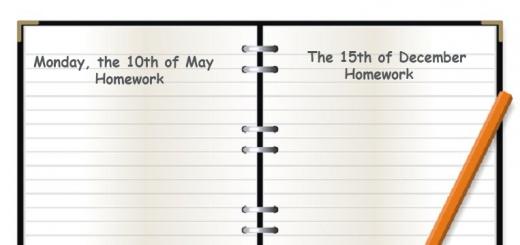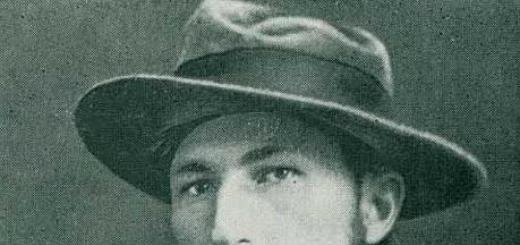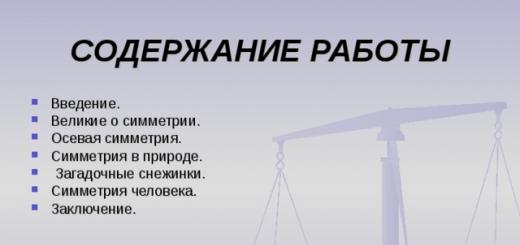In both paragraphs we state the same things: the boys fed the iguana given by their parents. However, in the first case there is a dry presentation, and in the second - lively. This is achieved by mentioning that they fed the iguana fresh lettuce, that she loved it very much, that they had to go to the local market to get it, that they did it together because they were used to sharing everything.
Details create the mood and are extremely important for the short story format. However, they should not be abused either. If there are too many details, then you risk going beyond the vocabulary limit, as well as boring the reader and turning an interesting story into a boring one. In general, there is no need to describe everything in detail. Instead, you should choose only the most striking and eye-catching ones.
Whenever possible, during the writing process we try to show off our vocabulary. Ideally, the vocabulary will be on the topic that we have chosen. In this case, it's a hobby.
(picture K) We did lots of things together: biking, playing computer games, swimming, skiing, to mention just a few. I keep some photos in my album which remind me of those happy days when we were free to do whatever we wanted. It was then that we promised each other that every year we would spend a holiday together, no matter what. And we kept this promise.
Having listed what the characters in the story did, we demonstrate vocabulary relevant to the topic. As with details, there is no need to overdo it. Even if you know three dozen names of different hobbies, this is not a reason to write every single one of them. Choose the most advanced ones, in your opinion.
Introduction and conclusion
So, we have compiled four paragraphs that are linked to pictures. But that is not all. Firstly, according to our instructions introduction and conclusion required. Secondly, the story itself has not yet reached completion. At the moment he is sequentially describing someone's memories. It's hard to imagine how this could arouse the reader's interest. To attract attention, you need to make the plot livelier. Let's use the introduction to do this.
"Come on, Jake, hold it!" he cried. I stretched my arm as far as I could, but the rope escaped me. I didn't dare look down, where the abyss was patiently waiting for my arrival. Mountaineering, this latest hobby of ours, had all the chances of being my last.
With this introduction, we kill two birds with one stone: we arouse the interest of the reader (who now wants to know whether the hero will fall or hold on) and mention the topic of the story (hobby).
What remains is the conclusion. In it we must tell the reader, who has patiently mastered the previous four paragraphs, how the matter ended.
In a frantic, desperate move I grasped the end of the rope, and soon I was back to the top of the rock from where I had slipped. "You know what, Luke" I said, trying to catch my breath, "I"m kind of tired of climbing. Why don"t we make a nice snowman instead?"
The history of holding Olympiads for schoolchildren is slightly shorter than the history of HSE itself. The university first opened its doors to conduct intellectual competitions among students in 1998. Since 2010, the Olympiad began to be held in close cooperation with leading Russian universities. In 2012, the Olympiad received a new name - the Interregional Olympiad for schoolchildren “Highest Standard”. The words “highest standard” in the title refer, of course, to the winners and medalists of the Olympiad. The fact that we have them of the “highest standard” is evidenced by the data of the Interuniversity study “The performance of first-year students at higher educational institutions in Russia,” conducted under the auspices of the Russian Council of School Olympiads. According to these data, the Higher School of Economics is annually included in the TOP-10 universities with the highest academic performance of Olympiad graduates. Since 2019, the Olympiad has become All-Russian.
Participants represent more than 83 constituent entities of Russia. The wide geographical coverage - from Kamchatka to Kaliningrad - allows us to rightfully call the Olympiad of our university the All-Russian Olympiad. Along with Russian schoolchildren, almost 4 thousand schoolchildren from the CIS and Baltic countries “fight” for victory in the Olympiad competitions.
Schoolchildren in grades 7-11 from Russia and neighboring countries are invited to participate in the Olympiad. Last year, 82,713 participants tried their hand at the “Highest Test” Olympiad.
Participation in the Olympiad is free. The Olympics are held in two stages. To take part, schoolchildren must complete the remote registration procedure on the website within the established time frame. The qualifying stage takes place in absentia via online testing. You can take part in it from any computer with Internet access. The final stage is held in person in more than 30 cities of the Russian Federation, CIS and Baltic countries.
Almost all subjects of the “Highest Standard” Olympiad were included in the Draft List of Olympiads for schoolchildren for the 2019/20 academic year, approved by the Russian Ministry of Education and Science. School graduates who became winners and prize-winners in the year of graduation receive benefits when entering higher educational institutions in Russia:
- enrollment without entrance exams into training programs corresponding to the specialized subject of the Olympiad;
- the maximum Unified State Examination score in a subject corresponding to the profile of the Olympiad.
Winners and prize-winners from non-graduating classes in the next academic year receive the right to take part immediately in the final stage.
The university ranks at the top of the university rankings in terms of the number of Olympiad winners and prize-winners admitted to the first year. Every year, about a thousand capable and talented students who have successfully competed at competitions become students at various HSE faculties.
Penza State University is a co-organizer of the All-Russian Olympiad for schoolchildren"Highest standard" , which included in the List of Olympiads for schoolchildren of the Ministry of Education and Science of the Russian Federation for the 2019-2020 academic year. These Olympiads give its winners and prize-winners the right to claim one of the benefits when entering universities in the Russian Federation ( admission without entrance examinations or 100 points in the core subject of the Unified State Examination). The benefit must be confirmed upon admission by passing the Unified State Exam in the Olympiad profile, no less than 75 points. The Olympiad takes place in two rounds (external and full-time).
Olympics« Highest quality » conducted in general education subjects:biology, oriental studies, oriental languages, design, journalism, foreign languages, computer science, history, history of world civilizations, cultural studies, mathematics, social studies, business fundamentals, political science, law, psychology, Russian language, sociology, physics, philology, philosophy, financial literacy , chemistry, economics, electronics and computer technology.
Participation in the Olympiad is free. The Olympics are held in two stages. To take part, schoolchildren must complete the remote registration procedure on the website within the established time frame. The qualifying stage takes place in absentia via online testing. You can take part in it from any computer with Internet access. The final stage is held in person in more than 30 cities of the Russian Federation, CIS and Baltic countries.
Registration for the interregional Olympiad for schoolchildren “Highest Test”, which is held by the National Research University Higher School of Economics together with a number of other leading Russian universities, will continue until November 13. Last academic year, Yakutia schoolchildren showed good results at the Olympiad, winning three first-degree diplomas.
“Highest Standard” is one of the largest school Olympiads in our country. In the 2017/18 academic year, 82.7 thousand people took part in the Olympiad. 2,235 people received diplomas, including 1,227 eleventh graders. 1,220 participants in the final stage of the Olympiad became students of the Higher School of Economics, taking advantage of admission benefits.
It should be noted that in the last academic year, Yakutia schoolchildren showed good results at the Olympiad.
Three schoolchildren from Yakutsk received first-degree diplomas. Among the winners were also children from Neryungri, Mirny and Nyurba. In total, 11 schoolchildren from Yakutia took prizes in various disciplines. The most prize-winners were awarded in mathematics (seven people). And the largest number of Olympiad winners were prepared by the Yakut City Lyceum and the Nyurba Technical Lyceum named after. A. N. Chusovsky.
In the 2018-2019 academic year, the “Highest Test” will be conducted in 25 profiles. Students in grades 9–11 have the widest choice: oriental studies, oriental languages, design, journalism, law, psychology, mathematics, physics, electronics and computer technology, foreign language, philology, Russian, computer science, history, history of world civilizations, economics, social studies, sociology, political science, philosophy, business fundamentals, financial literacy, cultural studies, biology and chemistry. 7th graders can try their hand at competitions in a foreign language, history, philology, mathematics, Russian, and 8th graders can also compete in economics and social studies.
For the first time this year, three new profiles will appear in the Olympiad - cultural studies, biology and chemistry, as well as a team programming competition, in which teams of 8-10 grade students of 3-4 people can participate, even if they study in different schools. Since competitions in these profiles are held within the framework of the “Highest Standard” for the first time, they are not included in the List of Olympiads for schoolchildren, annually approved by the Ministry of Education and Science of Russia. But the winners and prize-winners of these Olympiads will receive additional points to the total Unified State Examination points for individual achievements when admitted to undergraduate educational programs at the Higher School of Economics.
But the winners and prize-winners in all other areas of the Olympiad are provided with benefits for admission not only to HSE, but also to many other Russian universities, depending on the profile and level of the Olympiad. Thirteen Olympiads within the framework of the “Highest Standard” were assigned level I, six - level II, three - level III. The higher the level of the Olympiad, the more universities give its winners and prize-winners preferences for admission.
The Olympic competitions will be held in two stages: the qualifying round will take place from November 17 to December 2, 2018, the final round will take place from January 31 to February 8, 2019. After registering on the Olympiad website, participants in the first stage will receive an assignment on a predetermined day in their personal account on the Olympiad website. The second round will take place in person. Its holding points are traditionally located in more than 40 cities of Russia, the CIS and Baltic countries, depending on the number of schoolchildren in a particular city who have passed the second stage. This year, the list of cities hosting the final stage will be announced at the end of December.
Registration of participants will last until November 13. But now those guys who want to prepare for the competition can test themselves on the Olympiad test tasks posted on the website -










